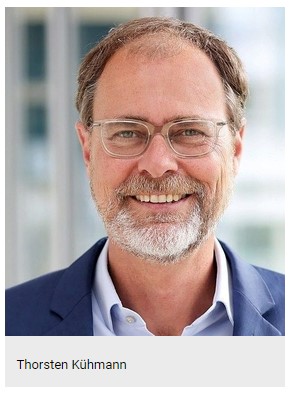Global economic situation impacting machinery investments
main text
Global economic situation impacting machinery investments

Although 2022 closed with a price-adjusted increase in turnover of 10 percent — in nominal terms, 18 percent — for German plastics and rubber machinery manufacturers, the outlook is subdued according to the latest report from the Plastics and Rubber Machinery Association at the VDMA.
Currently, the order books are still reasonably full, suggesting that 2023 may become a comparatively good sales year, but expectations regarding for 2024 onward are guarded.
“We lost new orders last year, with a price-adjusted minus of 13 percent, and in the first quarter of 2023 even more significantly at minus 33 percent," said Thorsten Kühmann, managing director of the Plastics and Rubber Machinery Trade Association. "That probably means fewer orders on the books that can be processed and converted into sales in 2024."
Demand is unlikely to pick up in the short term, according to the association. The combination of low growth, high inflation and high interest rates that characterizes the economic climate across the globe is disheartening investors.
While plastics and rubber machinery manufacturers stand to benefit from the U.S. Inflation Reduction Act and the economic stimulus package it provides, whether or not this can reignite the global economy is far from certain. The association sees growth opportunities for the sector mainly in the packaging and e-mobility spaces, with China leading the way. In China, the vehicle electrification trend is advancing at an enormous pace; the rising global population is also increasing the demand for packaged food.
Adverse economic conditions notwithstanding, the industry must also continue to pursue the transformation process towards a circular economy, confronting the twin challenges of decarbonization and defossilization. The task is a tremendous one — reducing carbon emissions or even establishing carbon-neutral production requires investment and restructuring. It is also one that is not made easier by the current uncertainties surrounding the supply and costs of energy experienced by many companies and customer groups.
In the light of these issues, the trade association and its board are setting a course for the plastics and rubber machinery manufacturing industry and its value chain partners that is marked by a number of key areas of action.
One focus will be on recruiting young talent. The trade association is working intensively with the VDMA Education Department to attract young people into the mechanical engineering field and in particular to the plastics industry. That department has collected data showing that the shortage of skilled workers constitutes the greatest risk in mechanical engineering.
The cause is a demographic change on the one hand, competition from other sectors and a lack of familiarity with the sector combined with the poor image of plastics. The issue is being addressed by four different associations: - Wir sind Kunststoff, GKV, PlasticsEurope and VDMA. A number of ideas have been put forward, including attracting more women to the field and recruiting employees abroad.
Another focus area is the circular economy. As mechanical engineering plays an active role in its implementation, the VDMA Plastics and Rubber Machinery Association has developed an event format allowing member companies to present their expertise as system providers focused on plastics recycling and the processing of recycled materials within key sales markets. The first venue will be Mumbai in India.
A third area of action is the further advancement of digitalization, both to increase the resource efficiency of the production processes and to progress the transition towards a CO2-neutral production. To that end, the association is calling for individual process steps to be digitally inter-networked, preferably across the entire value and supply chain, which will help users comply with the increasingly strict documentation and reporting obligations.
Product development can become more streamlined, as digital test versions of new products can save both energy and material. At the end-of-life, digitalization can considerably improves the waste sorting process, which benefits recycling efforts by enabling purer waste streams.
As well, the association notes that increasing the level of digitalization in production operations could also help solve the worker shortage: more automation means a company can operate with fewer, but more highly trained skilled workers.
Source : https://www.plasticsnews.com/news/global-economic-situation-impacting-machinery-investments
Edit : HANDLER
